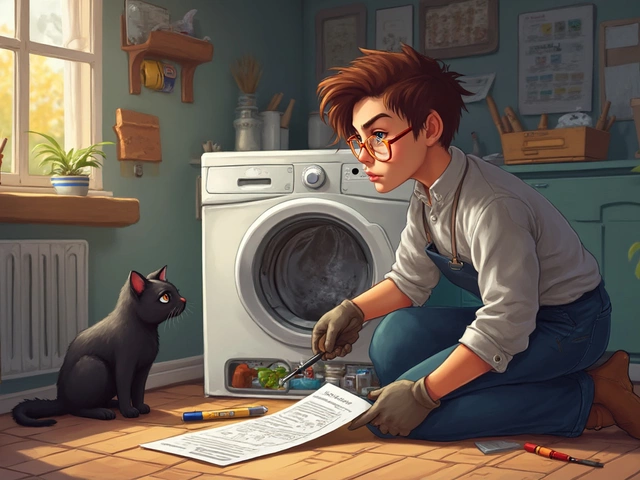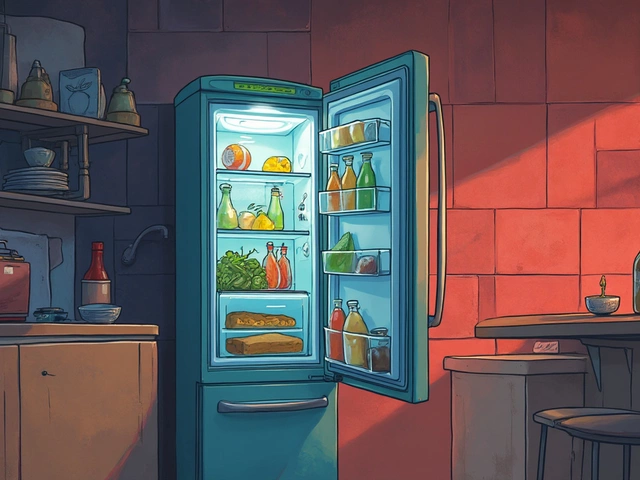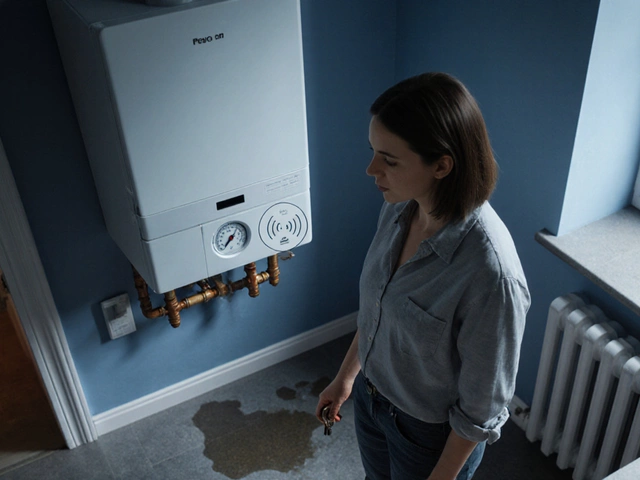When you’re remodeling your kitchen or bathroom, you might think installing an extractor fan is just another job on the list. But who actually does it? Plumbers? Electricians? Or maybe you can just grab a DIY kit and call it done? The truth is messier than most people expect.
Extractor fans aren’t just about air
Extractor fans don’t just pull out smoke or steam. They prevent mold, stop condensation from rotting your walls, and remove cooking odors that stick to carpets and curtains. In bathrooms, they’re required by building codes in most places to control moisture. In kitchens, they’re often mandatory if you have a gas hob. That means getting it right isn’t optional-it’s legal.
But here’s the catch: extractor fans connect to two systems. One is electrical-the fan needs power. The other is ducting-the fan needs a path to vent air outside. That’s where confusion starts. People assume plumbers handle everything because they work with pipes. But ducting isn’t plumbing. It’s ventilation.
Plumbers don’t usually install extractor fans
Most plumbers won’t install an extractor fan. Not because they can’t, but because it’s not their trade. Plumbers deal with water supply lines, drainage, gas lines, and sometimes radiators. They know how to run pipes through walls and fix leaks. But running a 100mm duct through a roof or through a cavity wall? That’s not in their standard toolkit.
Some plumbers will do it if they’ve trained in ventilation systems, but it’s rare. In the UK, for example, only plumbers registered with the Gas Safe Register can legally work on gas appliances. Even then, installing a fan isn’t covered under that certification. Most plumbers will refer you to an electrician or a ventilation specialist.
If you hire a plumber and they say yes, ask what qualifications they have for ductwork. If they mention CIBSE or BPEC certifications, that’s a good sign. If they just say, “I’ve done it before,” that’s not enough. Ventilation failures can lead to serious damage-mold behind tiles, rotting joists, even structural decay over time.
Electricians are the go-to for most installations
Electricians are the most common professionals for extractor fan installations. Why? Because they handle the wiring. Every fan needs to be connected to a circuit-either a dedicated one or tied into an existing light switch. Most modern fans also have timers, humidity sensors, or motion detectors. Those require proper electrical integration.
A qualified electrician will check your home’s wiring, make sure the circuit can handle the load, and install a fan that meets Part F of the Building Regulations (in the UK) or equivalent codes elsewhere. They’ll also know how to route the duct safely-avoiding insulation, keeping bends minimal, and ensuring the outlet is positioned correctly to avoid drawing air back into the house.
Some electricians offer full installation packages, including ducting and wall penetrations. Others only do the wiring. Always ask upfront. If they say they’ll “do the whole job,” confirm they’re licensed for ductwork too. Not all electricians are trained in ventilation design.
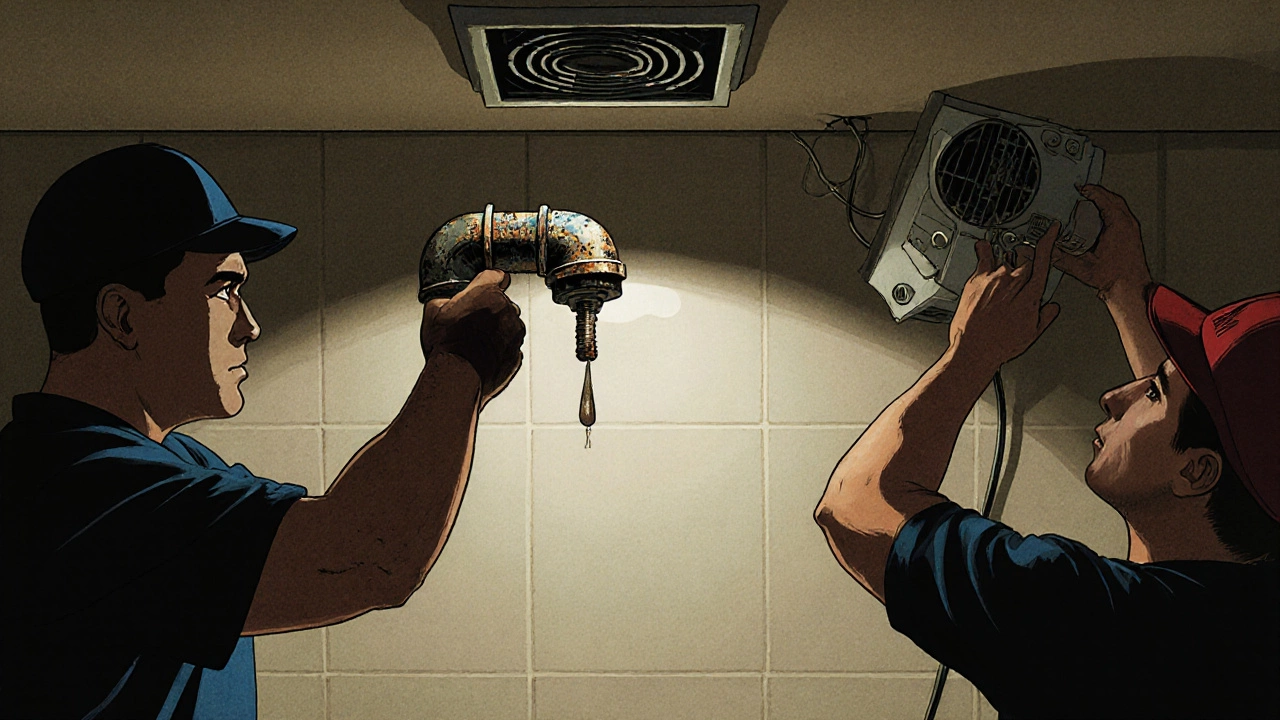
When might a plumber be involved?
There are a few cases where a plumber might step in. One is when the extractor fan connects to a mechanical ventilation heat recovery (MVHR) system. These systems often tie into central heating or plumbing infrastructure, especially in new builds or deep renovations. In those cases, a plumber with HVAC experience might coordinate the installation.
Another scenario: if you’re replacing an old extractor fan that was connected to a waste pipe (yes, some very old homes did this-badly), a plumber may need to cap off or remove the old pipe before the electrician installs the new fan. That’s cleanup work, not installation.
Also, if your fan is venting through a wall that’s shared with a bathroom or kitchen plumbing stack, a plumber might help with sealing around the penetration to prevent water ingress. But even then, they’re not installing the fan-they’re supporting the electrician’s work.
What about DIY?
You can buy a cheap extractor fan for £30 at a hardware store. You can YouTube how to install it. But here’s the problem: 7 out of 10 DIY installations fail within two years. Why?
- They don’t seal the duct properly, so air leaks and condensation builds up inside walls.
- They connect it to a lighting circuit that’s already overloaded, causing fuses to blow.
- They vent into the loft instead of outside, which turns your attic into a mold factory.
- They use flexible ducting with too many bends, reducing airflow by 60%.
One homeowner in Manchester replaced their bathroom fan themselves. Six months later, the ceiling tiles started sagging. A surveyor found 12 liters of water trapped behind the tiles. The fan was venting into the loft. The fix cost £1,800.
If you’re handy and want to try it, only do it if:
- You have access to the roof or external wall to run a rigid duct.
- You know how to test electrical circuits with a multimeter.
- You’re willing to get a building control inspection (required in many areas for new installations).
Otherwise, skip it. The cost of a professional install is usually £150-£250. That’s cheaper than fixing water damage.
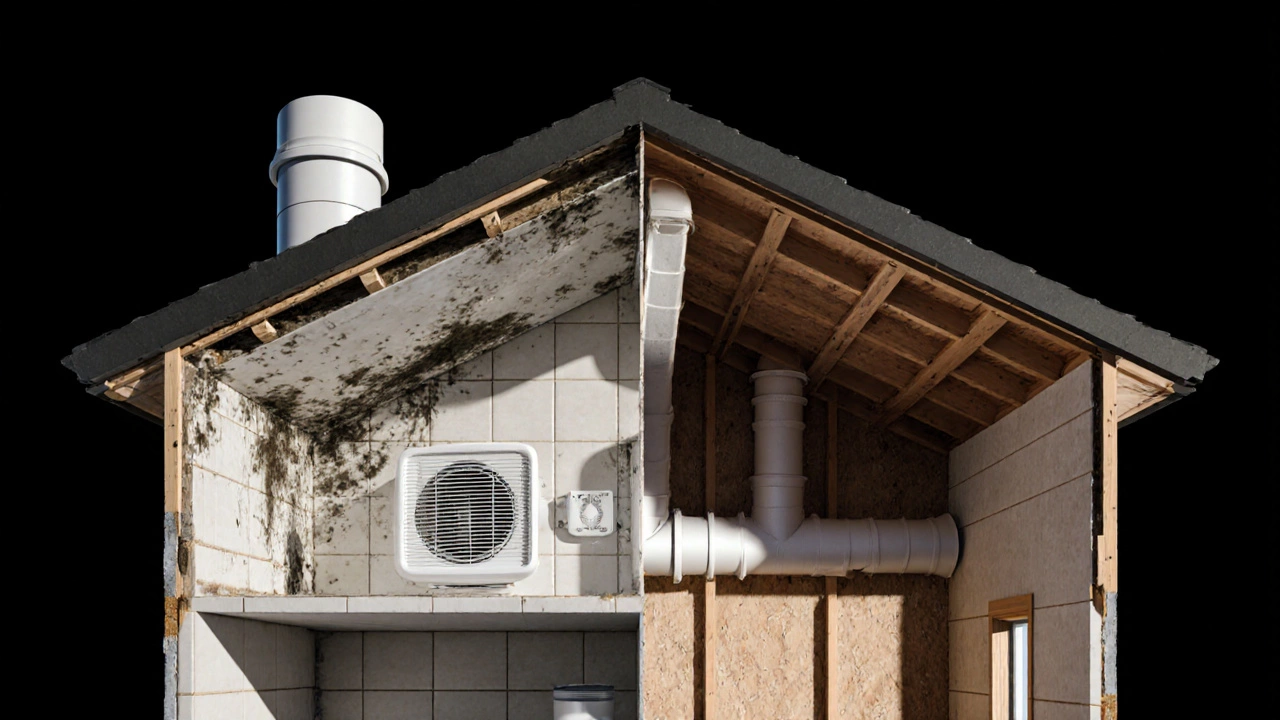
What’s the right professional for your job?
Here’s how to decide:
| Scenario | Best Professional | Why |
|---|---|---|
| New installation in kitchen or bathroom | Electrician | Handles wiring, duct routing, and compliance with ventilation codes |
| Replacing old fan with same type and location | Electrician | Same wiring, same duct-minimal disruption |
| Installing MVHR or whole-house ventilation system | HVAC specialist or plumber with HVAC certification | Integration with heating, ducting, and air balance |
| Old fan venting into waste pipe | Plumber + Electrician | Plumber removes old pipe; electrician installs new fan |
| Just the fan motor is broken | Extractor fan repair technician | Often cheaper than full replacement; no need to touch ducting |
If you’re unsure, call a local extractor fan specialist. Many companies offer free site visits. They’ll tell you exactly what’s needed and who should do it. No pressure. No upsell. Just the facts.
What if your fan isn’t working?
Before calling anyone, check a few simple things:
- Is the switch turned on? Some fans have pull cords or timers that get forgotten.
- Is the filter clogged? Most fans have a removable grease or dust filter. Clean it every 3 months.
- Is the duct blocked? Look outside-does air come out when the fan runs? If not, the duct may be crushed or full of bird nests.
- Is the motor humming but not spinning? That’s a capacitor failure. It’s a £15 part. A repair technician can swap it in 20 minutes.
Many extractor fan issues aren’t installation problems-they’re maintenance issues. A simple clean or capacitor replacement can save you £200.
Final advice: Don’t guess
Extractor fans are small, but they’re critical. A bad install can ruin your walls, your air quality, and your peace of mind. Don’t assume plumbers handle them. Don’t assume electricians do ducting. Ask. Check credentials. Get it right the first time.
If your fan’s broken, call a specialist in extractor fan repair. They’ll know the difference between a wiring fault and a blocked duct. They’ll fix it fast. And they won’t try to sell you a new system if you just need a new capacitor.
Can a plumber install an extractor fan?
Most plumbers won’t install extractor fans because it’s not part of their core trade. While some may have extra training in ventilation, the job typically requires electrical work and ducting expertise, which falls under electricians or HVAC specialists. Always ask for proof of relevant certifications before hiring anyone.
Who should I hire to install an extractor fan?
For most homes, hire a qualified electrician. They handle the wiring, ensure the fan meets building codes, and can route the duct properly. If you’re installing a whole-house ventilation system like MVHR, look for an HVAC specialist or a plumber with specific HVAC certification. Avoid general handymen unless they can show proof of ventilation and electrical training.
Is it safe to install an extractor fan myself?
It’s possible, but risky. Many DIY installations fail because of poor duct sealing, incorrect wiring, or venting into the loft instead of outside. These mistakes cause mold, rot, and even structural damage. If you’re not experienced with electrical circuits or ducting, it’s not worth the risk. A professional install costs £150-£250 and prevents costly repairs later.
Why does my extractor fan keep turning off?
If your fan turns off quickly, it’s likely due to a faulty capacitor, a blocked filter, or an overheating motor. Start by cleaning the filter and checking the duct for obstructions. If it still shuts off, the capacitor-which helps the motor start-is probably worn out. This is a common and cheap fix, often under £20. A repair technician can replace it in under 30 minutes.
Do extractor fans need regular maintenance?
Yes. Clean the filter every 3 months to keep airflow strong. Check the external vent every 6 months for bird nests, leaves, or ice buildup. Listen for unusual noises-grinding or buzzing means the motor or bearings are wearing out. Most fans last 10-15 years with basic care. Neglect can cut that in half.



